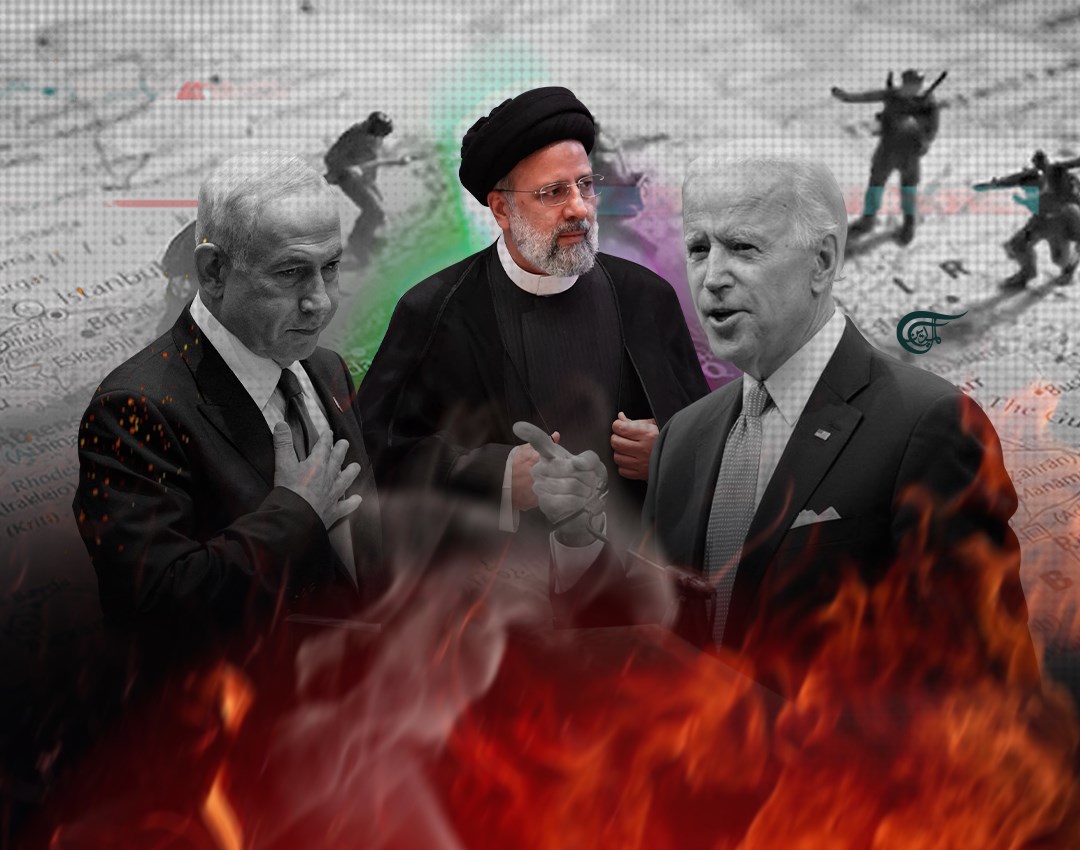Regional War?
Everywhere today, we hear the language of psychic stress -- of basal disquietude emanating out from societies clearly not ‘in themselves’. Managing military escalation in such a deranged context likely is inevitable.
-

Can this ‘deal’ work? Can Netanyahu realistically betray his hard Right coalition partners who hold him hostage to jail time, should he renege on his promises to them?
Many writers, but notably James Hillman in his book A Terrible Love of War, attempt to address our addiction to war; so terrible, yet providing a Mars-like fury that bonds men in battle: “I felt like a god”. One sentence, in one scene, from one film, General Patton, sums up what Hillman tries to explain: The general walks the field after a battle. Churned earth, burned tanks, dead men. He takes up a dying officer, kisses him, surveys the havoc and says: “I love it. God help me, I do love it so. I love it more than my life”. Simply said, societies have found -- and continue to find -- meaning in Life through war.
This is pertinent today. Voices are heard saying America needs a war to coalesce its polarised society. However, yet a different society -- with its own particular fractures, toxicities and deficiencies -- today is publicly manifesting just how its patchwork condition never was addressed seriously, but rather was painted over, and allowed to ferment.
Is war the only way to give "Israel" meaning today -- amidst its constitutional and political turmoil?
A trio of the most senior US envoys (Blinken, Sullivan and Burns) spoke gravely to PM Netanyahu last month. They came with a list of pre-prepared demands, posing as ‘a deal’. Washington seems bereft of diplomatic skills these days, so the ‘deal’ was a twenty-year-old ‘makeover’. I well remember the same playbook (already shop-soiled then) from when I participated in Senator George Mitchell’s Presidential team, attempting to steer the Second Intifada back onto some guiding rails. It didn’t work; its report quickly was pigeon-holed and gathered dust.
Veteran Israeli journalist, Nahum Barnea in Yediot Ahronoth, last week summarised succinctly:
"Put crudely and simplistically, this is the deal: in exchange for American cooperation in relation to Iran and Saudi Arabia, Netanyahu will not keep his engagements and his partners’ election promises, will deescalate, will maintain the status quo on the Temple Mount, will strengthen the Palestinian Authority and rein in the settlements. On each of these demands, the Israeli government would keep to red lines set by the US administration."
Separately, Blinken instructed President Abbas to implement yet another US security plan: The PA must provide "Israel" with its security. It must coordinate with "Israel" to suppress Palestinian resistance – this time with a new special Squad being trained by the US to quell the fresh shoots of a new intifada already apparent in Jenin and Nablus.
The message was crystal clear: "We suggest that you focus on the Iranian issue: You can have an historic achievement - a normalization ceremony with Saudi Arabia on the White House lawn” (contingent on MbS’ acquiescence). "On the other hand, you [Netanyahu] can take annexation steps in the West Bank, clash on the Temple Mount, carry out a judicial coup that will cast a shadow on 'Israel’s' perception as a liberal, democratic state, and project chronic instability to the world. Decide who you are, and what you want."
Put bluntly: Team Biden insist they must have "Israel" ‘off the front pages’ in the US, as they focus on Ukraine, Russia and China.
Can this ‘deal’ work? Can Netanyahu realistically betray his hard Right coalition partners who hold him hostage to jail time, should he renege on his promises to them? No. Does Abbas have the authority or credibility to wage war against his own people – for "Israel’s" security sake? No. Is MbS likely to embrace "Israel"? No. Is Iran likely to docilely accept "Israel" attrition without riposte? No. None of the actors are ready to accept these demands. And in the case of Netanyahu, he hubristically believes he carries more clout on Capitol Hill than Biden. Maybe.
So, is war with Iran then likely to become Netanyahu’s path out of his dilemma -- trapped as he is on all sides?
Well, here too, there are constraints: There is a fundamental gap between Israeli and US positions on Iran, despite all the consensual, ‘same page’ language.
The US – albeit uneasily – can accept Iran’s nuclear threshold status, provided it doesn’t shift into weapons mode (of which there is no sign). So, Netanyahu gets a ‘green light’ to jointly pursue attrition against the non-nuclear dimensions of Iranian activity (including versus so-termed ‘Iranian dimensions’ in Syria, Lebanon, Iraq, Yemen and Gaza).
Again, the message is blunt: Team Biden ‘understands’ the current Israeli ‘needs’, but shirks being seen as complicit in the execution of its covert ‘war’ with Iran.
Will this ‘freeze’ on the Iran question -- which may suit US interests -- be enough for Netanyahu? "Israel" is in metamorphosis: The foundations of the State obscured by years of masquerading and denial are in play with a vengeance. As one former senior Israeli diplomat puts it:
“Israel has developed into a wild patchwork of Basic Laws, governance and governability, [to the point these contradictions] converged - to heavily strain the already fractured Israeli democracy, and its tribal society. The confluence of democracy, the separation of powers, the Supreme Court and the ‘occupation’ is compounded by political toxicity and hatreds - so it’s natural to fear that Israeli democracy will crumble under the burden”.
So back to Hillman’s ‘love of war’ -- not in the name of peace, as deceitful rhetoric so often declares, but rather for war’s own sake: To understand the madness and ‘beauty’ of its fury. Is this Netanyahu’s exit out from the domestic strangulation of ‘compounding toxicities and hatreds’?
Of course, the seeking of any society’s meaning through war reflects nations that are not, as it were, inherently ‘in themselves’. They are ‘out’ of themselves -- clashing violently against the grain of Maat (that old understanding of an embedded order and harmony implicit in the world, if only its dynamics are not impeded, but rather, are refreshed).
War cannot be prevented, unless we assimilate this primary insight: when all the four walls are closing in -- literally -- some states and individuals will seek a transcendent meaning through the bonding experience of indulging in the ‘beautiful all-consuming collective fury’ of War.
Everywhere today, we hear the language of psychic stress -- of basal disquietude emanating out from societies clearly not ‘in themselves’. Managing military escalation in such a deranged context likely is inevitable -- it must take account of, and seek to propitiate this volatile god -- before it becomes an implacable force.

 Alastair Crooke
Alastair Crooke
 6 Min Read
6 Min Read











